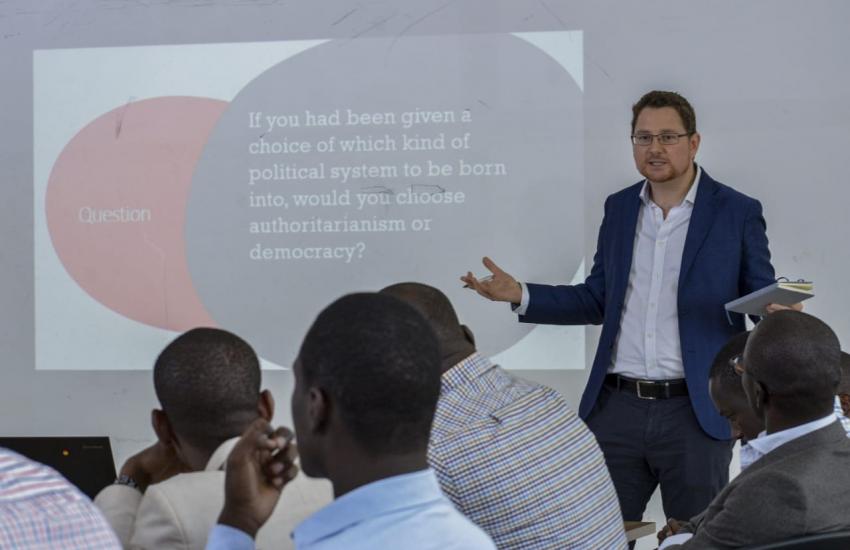Prof Cheeseman Speaks on Authoritarianism, Democracy and Development
“If you had been given a choice of which kind of political system to be born into, would you choose authoritarianism or democracy?”
This is the question that Nic Cheeseman, Professor of Democracy at the University of Birmingham, posed during a packed seminar hosted by the Institute for Development Studies, University of Nairobi, on November 14, 2019.
Many hands were raised in favour of democracy but a few hands were raised too in favour of authoritarianism, including one famous hand in political studies. The question set stage for Prof Cheeseman’s talk entitled: Is Authoritarianism or Democracy Better for Development?
The scholar noted that democratic frustrations in Kenya, Zambia, and Zimbabwe; effective authoritarian regimes in Ethiopia and Rwanda; and the rise of China as a successful developmental authoritarian state are some of arguments made in favour of authoritarianism.
Prof Cheeseman pointed out that a small number of authoritarian states perform well but most perform extremely badly. He said Rwanda, with economic growth around 8%, is one of the countries often cited as examples of nations thriving under authoritarianism but he argued that its successes cannot be replicated in other countries and may not be sustainable after President Paul Kagame’s exit.
In the Rwandan case, he said, extremely tight political control is translated into tight economic control, development driven through Party-Owned-Enterprises, and centralization of rents, which are reinvested in the system.
“It is implausible that these conditions can be created and sustained in most African states,” said Prof Cheeseman.
The scholar noted that ultimately, all authoritarian regimes are founded upon violence – sometimes embedded within a militarized state and society itself, sometimes visited upon citizens only occasionally, and otherwise held back as a looming threat. Authoritarian regimes are responsible for stagnation of development and deliver development to legitimize human rights abuses.
On the other hand, Prof Cheeseman observed that on average, democracies generate higher levels of economic growth and countries that have been democratic for longer tend to grow faster. In democratic nations policies reflect the public need and are implemented in accountable and transparent system.
Prof Cheeseman’s book, Authoritarian Africa: Repression, Resistance, and the Power of Ideas, was launched during the seminar presided over by IDS director Prof Karuti Kanyinga.
Prof. Cheeseman at the University of Nairobi During his Book Launch
“If you had been given a choice of which kind of political system to be born into, would you choose authoritarianism or democracy?” Prof Cheeseman posed the question again at the end of the seminar. This time it was rhetorical but the answer was quite evident.


